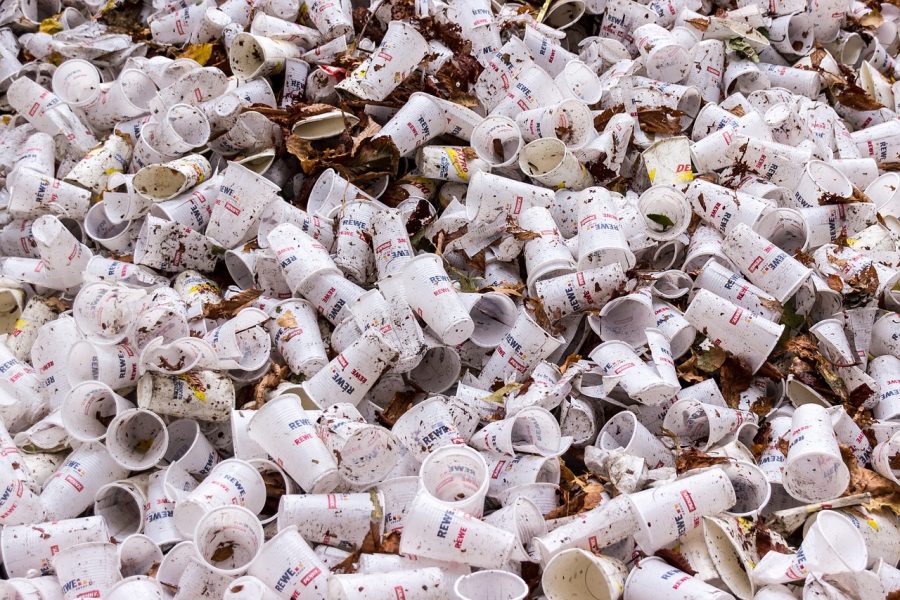The Poitras Point
Our destructive love of plastic
March 27, 2019
With three feet of snow outside and it still being March, it sounds crazy that global warming crisis could be expected much sooner than scientists had originally thought. In Maine we have the privilege of icy cold winters and mild summers, but gradually our summers and winters are becoming more extreme.
It is expected by 2040 we will be in a global warming crisis, according to scientists. Today we already face problems related to global warming. California has been in a drought for over seven years, which has led to massive and deadly wildfires. Two years ago it was so hot in India that shoes melted on the hot top.Tick populations are expected to last through the fall and winter because of warmer climates.
There are many reasons why global warming is accelerating. As the years have gone by, people tend to care less, despite the media’s attention. It’s more than the trash we produce, it’s about the single-use materials we use that don’t biodegrade, such as plastics.Wee consume fish that have tiny pieces of plastic, the gum we chew contains plastic, and even when we launder some of our clothing, we’re putting plastic into the ground. We are not looking for alternative resources that are cleaner. We are not recycling items because it’s deemed too expensive. We make new plastics instead of changing the shape and use of our used plastics.
About 8.3 billion metric tons of plastic waste have been created since the mass production of plastics began nearly 60 years ago. Plastic takes about 400 years to decompose and about 12 percent have be incinerated. Ninety-one percent of the plastics we use have not been recycled,which has led to 4.8 to 12.7 million tons of plastic in our oceans.
I understand the convenience of plastics, and I am not saying ban all plastics and never use them, I’m just saying be cautious of how we use our plastics. If there is a non-plastic alternative then use that. Sometimes you can use them over and over again. The alternatives can be expensive, but the way I look at it: four reusable sandwich bags cost around $20 and as long as you wash them, you recoup your money quickly.
There are thousands of alternatives that are more durable and potentially less expensive than plastic. We don’t have to get rid of all plastics but get rid of the unnecessaryplastics. Why use a plastic toothbrush when you can get a bamboo one? Why buy disposable make-up sponges and wipes when you can buy reusable cotton ones? Change your plastic straws to metal or refuse one at a restaurant.
The most infuriating thing for me is plastic wrapped produce. First of all, it’s more expensive because it’s been pre-cut or peeled. It also doesn’t make sense because there is a ton of produce that’s naturally wrapped and has no need to be wrapped again. In The
County it’s hard to find plastic-free things, but my favorite place to go is the farmers market where you can find produce not wrapped in plastic and it helps your local farmers and businesses.
It’s the little things: don’t ask for straws, bring your own bags to grocery stores. Look for alternatives and do your research. Global warming and its causes are hard topics to conceive of and talk about, but we only have one planet.
Earth can thrive without us, but we will die without it.

